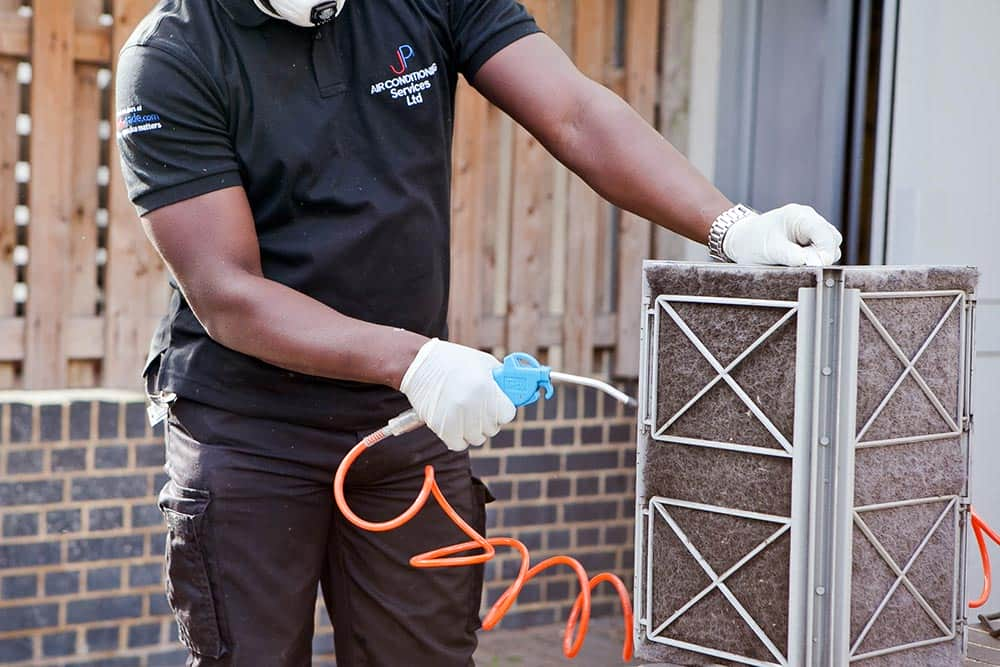Air conditioning is rapidly becoming a vital component of modern living, providing comfort and improved indoor air quality, especially in hotter climates and as global warming increases. One crucial aspect of air conditioning maintenance is the regular inspection and replacement of the aircon unit’s filters.
In this article, we explore the various types of filters available in the British market, their benefits, and when it’s necessary to change them.
Types of air conditioning filters
-
Fibreglass filters
Fibreglass filters are the most common and cost-effective option. They consist of layered fiberglass fibres that trap large particles, such as dust and lint. While they offer minimal filtration for allergens and pollutants, they are still useful for protecting the HVAC (heating, ventilation, air conditioning) system from larger debris.
-
Pleated filters
Pleated filters have a larger surface area than fibreglass filters, allowing them to capture smaller particles more effectively. Made of cotton or polyester, these filters can remove finer dust, pet dander, mould spores, and pollen. Pleated filters generally provide better indoor air quality.
-
Electrostatic filters
Electrostatic filters are constructed with self-charging fibres that attract and capture airborne particles. They are available in both disposable and washable forms. These filters are efficient at removing allergens and fine dust. Washable electrostatic filters are an eco-friendly option but require regular cleaning.
-
High-efficiency particulate air filters
HEPA filters offer the highest level of filtration, capable of trapping over 99.97% of particles larger than 0.3 microns. These filters are beneficial for individuals with respiratory conditions or allergies as they capture fine dust, pollen, mould spores, pet dander, and even bacteria.
Benefits of regular maintenance
Improved indoor air quality: regularly changing your filters ensures that airborne particles, allergens, and pollutants are effectively removed from the indoor air. This leads to cleaner and healthier air, reducing the risk of respiratory problems and allergies.
Energy efficiency: clean filters allow for better airflow, which enhances the overall energy efficiency of your aircon system. Clogged filters obstruct the airflow, forcing the system to work harder, consuming more energy, and potentially leading to increased utility bills.
Extended HVAC lifespan: by regularly replacing filters, you reduce the strain on your HVAC system. Clean filters prevent dust and debris from accumulating on vital components, reducing the risk of system breakdowns and extending the lifespan of your air conditioner.
Changing the aircon filter
The frequency of filter changes depends on various factors, including the type of filter and the level of pollutants in your environment. However, as a general guideline, it is recommended to inspect and change your filter every 1-3 months. If you have pets, live in a dusty area, or suffer from allergies, more frequent changes may be necessary.
Aircon filters play a crucial role in maintaining indoor air quality and in the efficient functioning of your HVAC system. Choosing the right filter for your needs and regularly replacing it can help create a healthier and more comfortable environment. By understanding the different filter types, their benefits, and following a regular maintenance schedule, you can ensure optimal performance from your aircon for many years. Regular TLC is definitely the best policy when it comes to filters.



